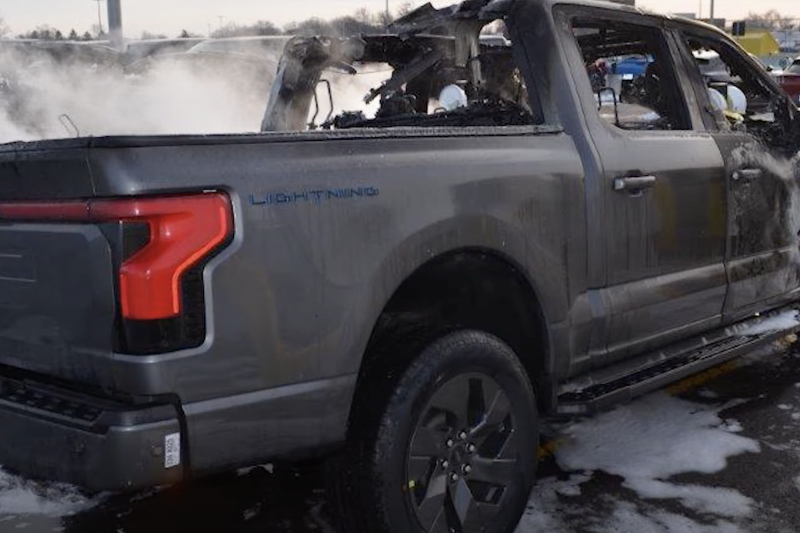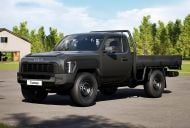The Ford F-150 Lightning may be in hot demand but it’s gotten off to a somewhat rocky start, and there is now footage of the incident that led the Blue Oval brand to pause production.
Back on February 4, Ford halted production of the F-150 Lightning after a fire incident. Now thanks to a CNBC Freedom of information act request, video footage of the incident has been released from the emergency services personnel who attended the scene first.
The footage reveals the electric pickup truck caught fire while being charged at the Dearborn Truck Plant in Michigan.
“There was only one [truck on fire] when we got here. They’re catching. It’s these frickin’ batteries,” a responding officer is heard saying.
“We’re not putting this f#*#er out. Look at it,” says another responder. “They have to put like a whole f-ing lake on it to put them out,” the same officer says.
The fire caused significant damage to the truck, but luckily no one was injured in the incident. However, production was temporarily paused to investigate the cause of the fire and ensure the safety of the employees and the public.
Ford later confirmed production of its electric truck resumed on the 13th of March. The company’s battery supplier, South Korean brand SK, has since said it was a rare occurence and not a design flaw, which Ford confirmed in its own statement.
The incident raised concerns about the safety of Ford’s electric utes initially, but has not hindered forward interest and orders of the F-150 Lightning.
“On Feb. 4, during a standard quality check, one vehicle displayed a battery issue and caught fire. The root cause identified was related to battery cell production at the SK On plant in Georgia,” the brand said in a statement.
“Ford is not aware of any reports of accident or injury related to this recall. Together with SK On, we have confirmed the root causes and have implemented quality actions. Production is on track to resume Monday with clean stock of battery packs.”
As part of the rectification process, the 18 other Ford F-150 Lightnings built with the batch of batteries identified to have a potential issue and delivered to customers were recalled to have their battery pack replaced.




